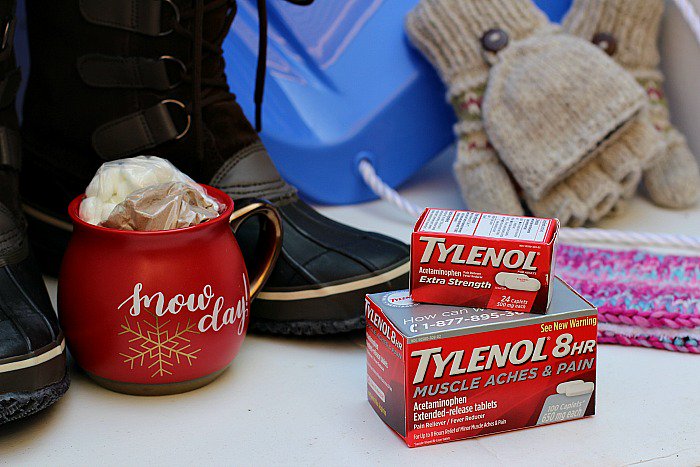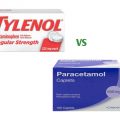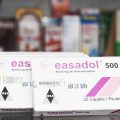Sleepiness refers to feeling drowsy or tired or being unable to keep your eyes open. Sleepiness can be accompanied by lethargy, weakness, and lack of mental agility. While most people feel drowsy at some point or another, persistent sleepiness or fatigue, especially at inappropriate times, can indicate a sleep disorder or other medical problem.
Many medications, especially antihistamines, tranquilizers, and sleeping pills, list drowsiness as a possible side effect. These medications have a label that warns against driving or operating heavy machinery while using these drugs.
What is Tylenol?
Tylenol is a brand of acetaminophen, a common pain reliever, and a fever reducer. Tylenol is used to treat mild to moderate pain, to treat moderate to severe pain in conjunction with opiates, or reduce fever. Common conditions treated include headache, muscle aches, arthritis, backache, toothache, sore throat, colds, flu, and fevers.
The active ingredient in all OTC Tylenol products is acetaminophen, which works primarily to relieve pain and fight fevers. The main difference between the types of Tylenol is the amount of acetaminophen in each one. For example, stronger formulations are meant to relieve more intense types of pain.
Tylenol also comes in different forms—for example, there are liquids, dissolvable powders, chewable tablets, caplets, and capsules.
Acetaminophen, the active ingredient in Tylenol is also available in many over-the-counter combination medications with other drugs, including Actifed, Alka-Seltzer Plus Liquid Gels, Cepacol, Contac, Coridicin, Dayquil, Dimetapp, Dristan, Excedrin, Feverall, Liquiprin, Midol, Nyquil, Panadol, Robitussin Singlet, Sinutab, Sudafed, Theraflu, Triaminic, Vanquish, Vicks, and Zicam.
How is Tylenol taken?
Tylenol adult acetaminophen products are available in three strengths: Tylenol Regular Strength (325 mg), Tylenol Extra Strength (500 mg), and Tylenol 8 HR Extended-Release (625 mg). Tylenol Regular Strength is available in two forms:
• Tablets: 325 mg
• Liquid gel capsules: 325 mg
Tylenol dosage for adults
Tylenol Regular Strength has a standard dose of two tablets or capsules (650 mg) taken every four to six hours.
• Standard Tylenol for adults and adolescents 12 or older: Two tablets or gel capsules (650 mg) every four to six hours while symptoms last.
• Maximum Tylenol dosage for adults and adolescents 12 or older: No more than 10 tablets (3,250 mg) in 24 hours. Do not use it for longer than 10 days. The FDA has set the maximum daily dose for acetaminophen at 4,000 mg. However, healthcare professionals and the manufacturers of Tylenol strongly advise that people take no more than 3,000 mg per day to reduce the risk of accidental overdose and liver poisoning.
Consult a doctor about the appropriate acetaminophen dosage if you have liver disease, kidney disease, or are taking drugs that may interact with acetaminophen.
Does Tylenol make you sleepy?
No, taking regular Tylenol does not make you sleepy or cause drowsiness. However, Tylenol PM which contains acetaminophen and diphenhydramine can cause sleepiness which explains why so it is used as a nighttime sleep aid.
Drowsiness with Tylenol PM is more likely to happen or be more intense if you are over 65 years old, drink alcohol while taking this medication, or take other medications that cause drowsiness (e.g., opioids, benzodiazepines, sleep medications).
How long does it take for Tylenol PM to make you sleepy?
Generally, it takes about 15 to 30 mins for Tylenol PM to start working, which explains why it’s best to take it 30 minutes before bedtime. Approximately eight out of 10 people experience a hangover effect the day after taking sleep medicines like Tylenol PM. They feel drowsy, have muddled thinking, and experience dizziness or balance problems.
How much Tylenol will put you to sleep?
The typical dosing for Tylenol PM for adults and children aged 12 years and over is 1,000 mg/50 mg taken by mouth at bedtime. Don’t take more than this amount in 24 hours.
If you suspect you’ve taken too much Tylenol or Tylenol PM or notice any of these symptoms, contact your poison control center or get medical help right away. If you know you’ve taken more than the recommended dosage of acetaminophen, go to the nearest emergency room, even if you don’t have any symptoms of liver damage. If someone you know who has taken acetaminophen becomes unresponsive or stops breathing, call 9-1-1 or the number for your local emergency services.
Tylenol Side Effects
Tylenol has side effects, but most people don’t experience them. Most people tolerate this drug well. In rare cases, people have had allergic reactions to it. The most concerning side effect, though, is severe liver damage. It usually only happens when you overuse acetaminophen.
Allergic reaction
In very rare cases, some people have had allergic reactions to acetaminophen. Call your doctor immediately if you develop the following reactions after taking acetaminophen:
• difficulty breathing or swallowing
• hives
• peeling or blistering skin
• severe itching
• swelling of your face, lips, throat, or tongue
Severe liver damage
Acetaminophen poisoning can happen from taking too much acetaminophen. Your liver processes acetaminophen and converts it into a different substance. If you take large amounts of acetaminophen, your liver produces more of that substance. And when there is too much of it, that substance can damage your liver. However, if you take acetaminophen at the recommended dosage, liver damage from the drug is not likely.
Symptoms of liver damage include:
• dark or tea-colored urine
• dark, tarry stools
• fatigue
• loss of appetite
• nausea or vomiting
• pain in the upper right area of your abdomen
• pale skin
• sweating more than usual
• unusual bruising or bleeding
• yellowing of your skin or the whites of your eyes (jaundice)
Tylenol may cause other side effects. Call your doctor if you have any unusual problems while you are taking this medication.
If you experience a serious side effect, you or your doctor may send a report to the Food and Drug Administration’s (FDA) MedWatch Adverse Event Reporting program online (http://www.fda.gov/Safety/MedWatch) or by phone (1-800-332-1088).
What should I avoid while taking Tylenol?
Ask a doctor or pharmacist before using any other cold, allergy, pain, or sleep medication. Acetaminophen (sometimes abbreviated as APAP) is contained in many combination medicines. Taking certain products together can cause you to get too much acetaminophen which can lead to a fatal overdose. Check the label to see if a medicine contains acetaminophen or APAP.
- Avoid drinking alcohol. It may increase your risk of liver damage while taking Tylenol.
- Avoid using other medicines that may contain Tylenol.
- Avoid drinking alcohol
This article first appeared on Meds Safety Read the Original Article Here





